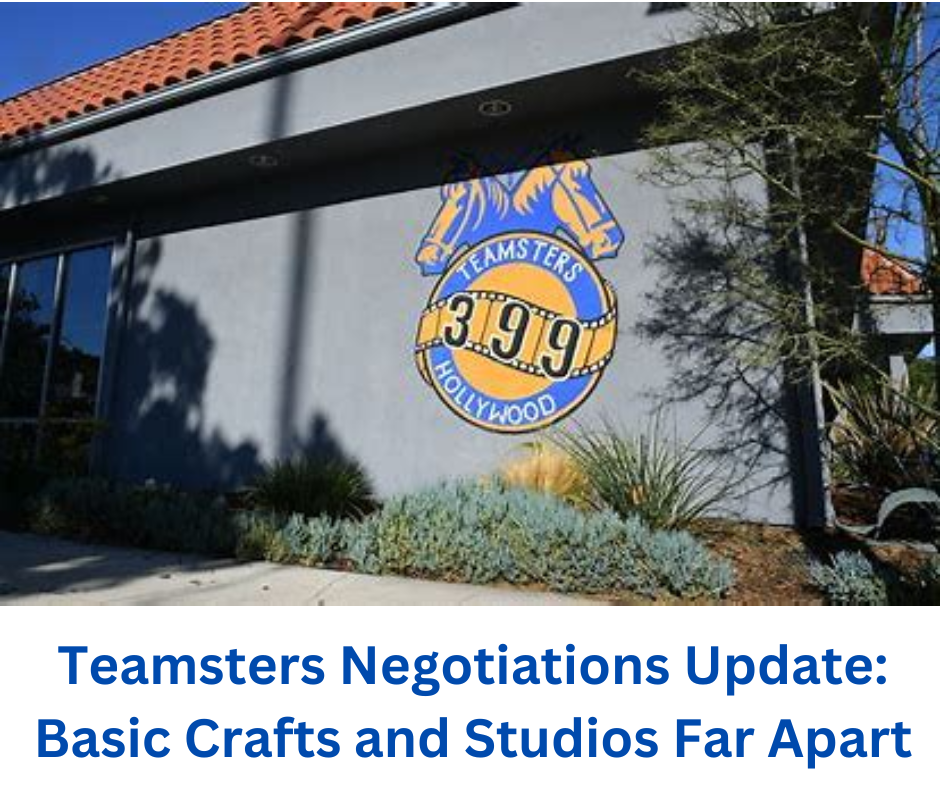The landscape of labor negotiations is a crucial aspect of maintaining harmony and productivity in industries. Recent developments have highlighted a significant rift between the Teamsters and studios, particularly in the basic crafts sector. This article delves deep into the nuances of these negotiations, exploring the key issues at stake, the positions of both parties, and the potential implications for the industry.
Background on Teamsters and Basic Crafts
The Teamsters Union, one of the most powerful and influential labor unions in the United States, represents a wide range of workers across various industries. Among these are the basic crafts workers, who play a pivotal role in the film and television industry. These workers include carpenters, electricians, painters, and other skilled tradespeople essential for the production process.
The relationship between the Teamsters and studios has historically been marked by negotiations aimed at securing fair wages, benefits, and working conditions. However, recent talks have revealed a significant divide that could impact the industry’s stability.
Key Issues at Stake
Wages and Compensation
One of the primary issues in the current negotiations is wages. Basic crafts workers are demanding higher pay to keep pace with the rising cost of living and to reflect their essential contributions to productions. The studios, on the other hand, are pushing back, citing budget constraints and the financial pressures of the post-pandemic landscape.
Health and Safety
Health and safety concerns have also taken center stage, especially in the wake of the COVID-19 pandemic. The Teamsters are advocating for stricter health protocols, better protective measures, and comprehensive health insurance coverage. The studios agree on the importance of safety but are resistant to the increased costs associated with these demands.
Job Security and Stability
Another critical issue is job security. Basic crafts workers are seeking guarantees of stable employment and protection against layoffs. With the industry undergoing rapid changes and adopting new technologies, there is a growing fear of job displacement. The studios argue that flexibility is necessary to adapt to these changes and maintain competitiveness.
Working Conditions
Working conditions remain a contentious topic. Long hours, limited breaks, and the physical demands of the job are significant concerns for the workers. The Teamsters are pushing for better working hours, adequate rest periods, and improved working environments. Studios, however, are wary of the potential increase in production costs and scheduling challenges.
Positions of the Parties
Teamsters’ Stance
The Teamsters have taken a firm stance on the need for substantial improvements in wages, health and safety measures, job security, and working conditions. They argue that the basic crafts workers are the backbone of the industry and deserve to be compensated fairly and treated with respect. The union is prepared to leverage its influence, including the possibility of strikes, to achieve these goals.
Studios’ Perspective
The studios, while acknowledging the importance of the basic crafts workers, are focused on maintaining financial stability and operational flexibility. They emphasize the need to control costs in a highly competitive market and are advocating for more gradual changes. The studios are open to negotiations but are cautious about making commitments that could strain their budgets.
Implications for the Industry
The outcome of these negotiations could have far-reaching implications for the film and television industry. A prolonged dispute could lead to work stoppages, delaying productions and increasing costs. On the other hand, a resolution that addresses the concerns of the basic crafts workers could foster a more motivated and committed workforce, ultimately benefiting the industry in the long run.
Potential for Strikes
The possibility of strikes looms large if the negotiations fail to reach a satisfactory conclusion. Strikes could disrupt the production schedules of major films and television shows, causing significant financial losses. The threat of strikes puts additional pressure on both parties to find common ground.
Impact on Production Costs
Meeting the demands of the basic crafts workers could lead to an increase in production costs. Studios might need to allocate more resources to wages, health and safety measures, and improving working conditions. While this could strain budgets in the short term, it may also lead to higher quality productions and greater worker satisfaction.
Long-term Industry Dynamics
The negotiations could also set a precedent for future labor talks in the industry. A successful agreement that addresses the concerns of the basic crafts workers could serve as a model for other unions and sectors. Conversely, a contentious outcome could exacerbate tensions and lead to more frequent disputes.
Conclusion
The negotiations between the Teamsters and the studios over the basic crafts workers are at a critical juncture. With significant issues such as wages, health and safety, job security, and working conditions on the table, the outcome will have a profound impact on the industry. Both parties must navigate these complex negotiations with a view towards achieving a fair and sustainable resolution.
